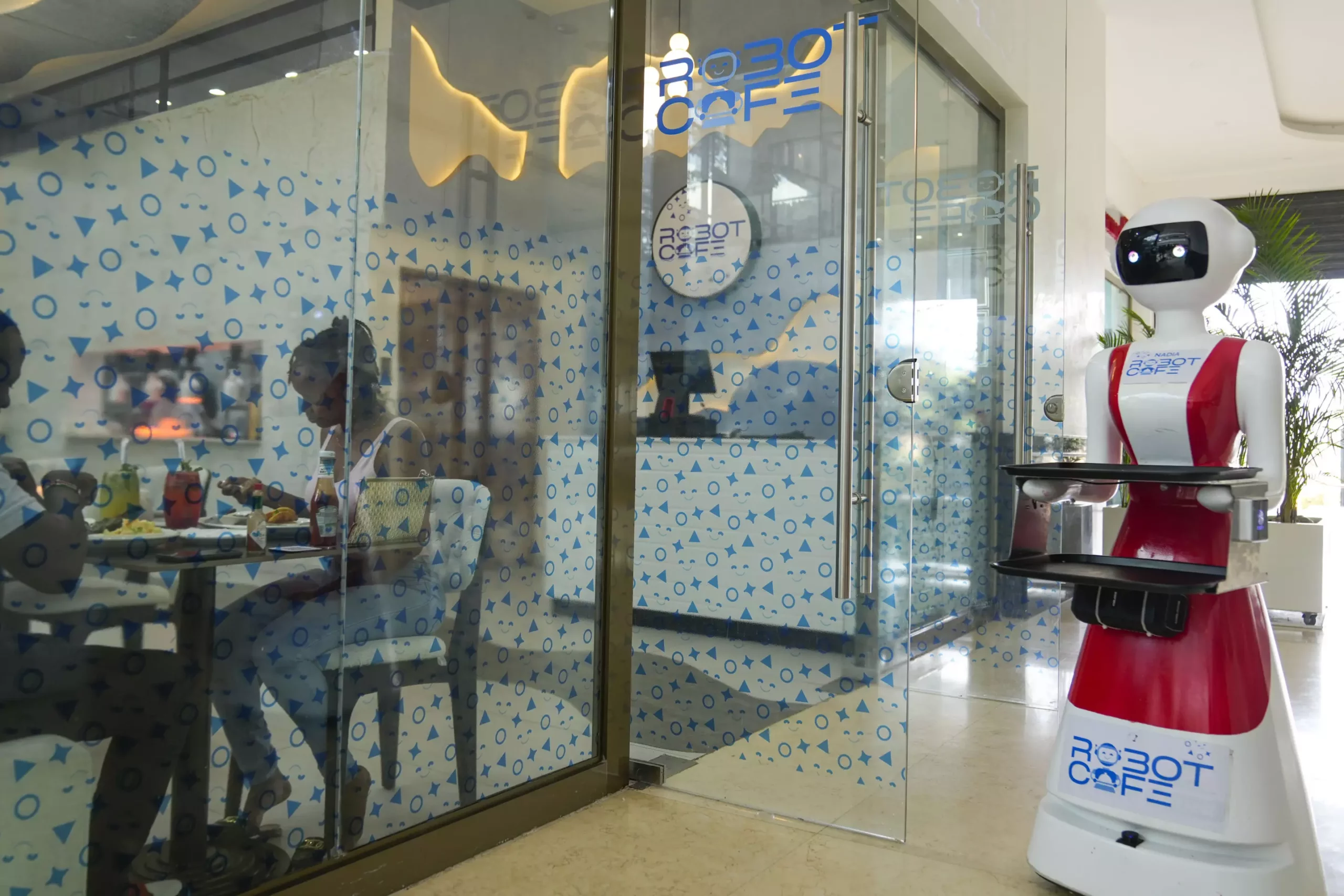In the heart of Nairobi, Kenya, children are amused and patrons are intrigued by the sight of robots seamlessly navigating through a bustling restaurant, delivering meals to guests. This innovative concept, known as the Robot Cafe, has taken the East African region by storm, showcasing the intersection of technology and hospitality in a unique setting. With the rise of startups and technological innovations in Nairobi, the cafe has become a symbol of the city’s growing reputation as a tech hub, earning the moniker of ‘The Silicone Savanna’.
At the Robot Cafe, three robots named Claire, R24, and Nadia, coexist with human waiters, offering a glimpse into the future of service industry automation. The decision to introduce robots into the restaurant was inspired by owner Mohammed Abbas’s experiences in Asian and European countries, where similar robotic services are already in operation. While the initial investment in the robots was substantial, Abbas notes that the novelty of the concept has attracted a steady stream of curious customers, eager to witness the seamless interaction between technology and traditional service.
Despite the success of the Robot Cafe, challenges remain in fully integrating robotic service into the hospitality industry. The limitations of the robots in engaging with customers beyond basic greetings and order notifications pose a significant obstacle, emphasizing the continued need for human waitstaff to provide a personalized touch to the dining experience. Cafe manager John Kariuki acknowledges that while the robots offer a novel attraction, they cannot fully replace the skills and flexibility of human workers, making them a costly addition to the restaurant’s operations.
Hospitality industry expert Edith Ojwang highlights the importance of balancing robotic and human service in the industry. While automation can streamline certain processes and enhance efficiency, human interaction remains a crucial element in providing exceptional customer experiences. Ojwang suggests that the diverse nature of the hospitality client base allows for both robotic and human services to coexist, catering to varying preferences and expectations within the industry.
As the global workforce undergoes rapid transformation due to technological advancements, the hospitality industry faces a pivotal moment in embracing automation while preserving the human touch. The Robot Cafe serves as a microcosm of this evolving landscape, offering a glimpse into a future where robots and humans work in tandem to deliver unparalleled service to patrons. While the cafe showcases the potential of integrating technology into traditional service models, it also raises important questions about the role of automation in reshaping the workforce and redefining industry standards.
The emergence of robotic service in the hospitality industry represents a paradigm shift towards innovative and efficient service delivery. While challenges persist in maximizing the capabilities of robots and balancing them with human workers, the coexistence of technology and tradition offers a promising vision for the future of hospitality. By embracing technology while honoring the heritage of service excellence, establishments like the Robot Cafe pave the way for a new era of hospitality where robots and humans harmoniously collaborate to exceed customer expectations.


Leave a Reply